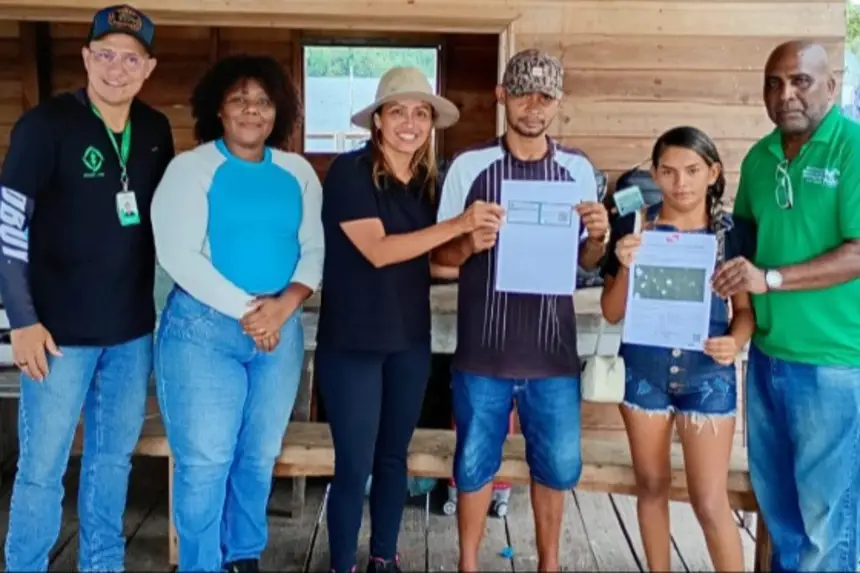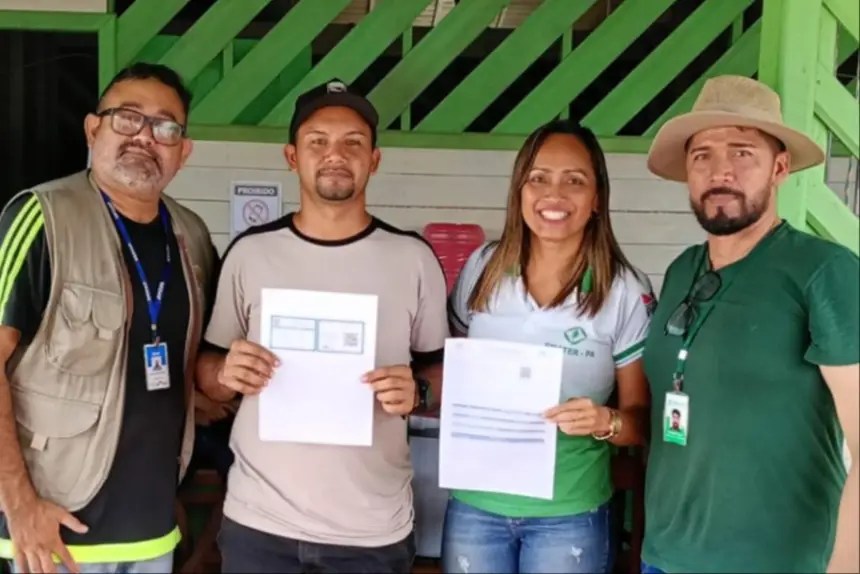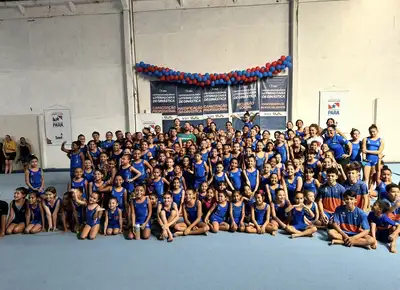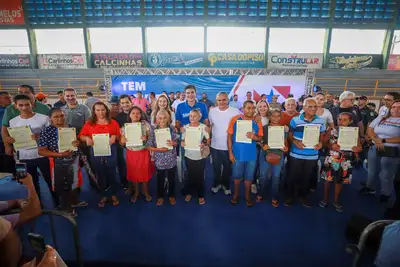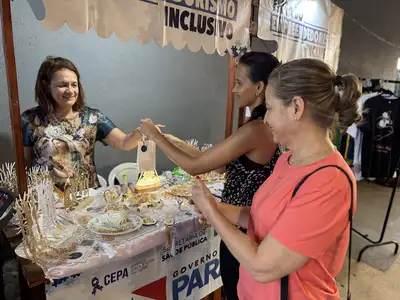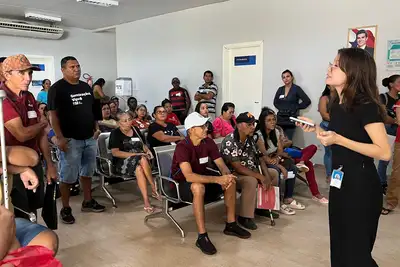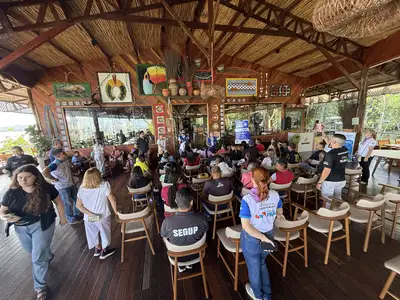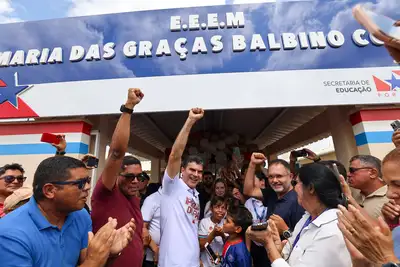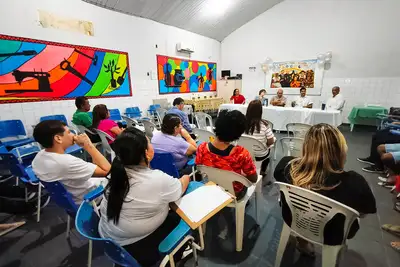Emater and Sedap deliver CAFs to rural producers through the Marajó Sustentável program
Technical Assistance and Rural Extension Company (Emater) and Sedap benefit communities focusing on environmental conservation and income generation
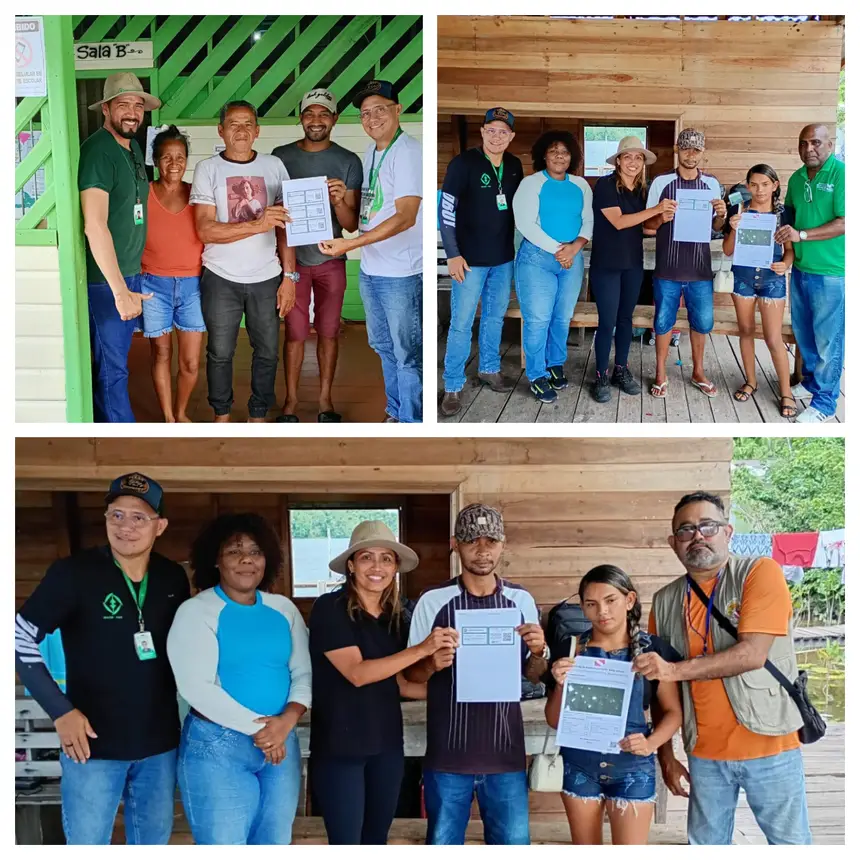
Producers and rural farmers from the Nossa Senhora do Perpétuo Socorro community, in the Rio Aramã locality, in Anajás, are being awarded with the delivery of more than 30 Family Agriculture Registrations (CAF), through actions of the Marajó Sustentável program.
The initiative is the result of a partnership between the Technical Assistance and Rural Extension Company of Pará (Emater Pará) and the Secretary of Agricultural Development and Fishing of Pará (Sedap), aimed at valuing the work of riverside dwellers who engage in the management of native rubber trees, promoting nature conservation with a focus on a sustainable source of income.
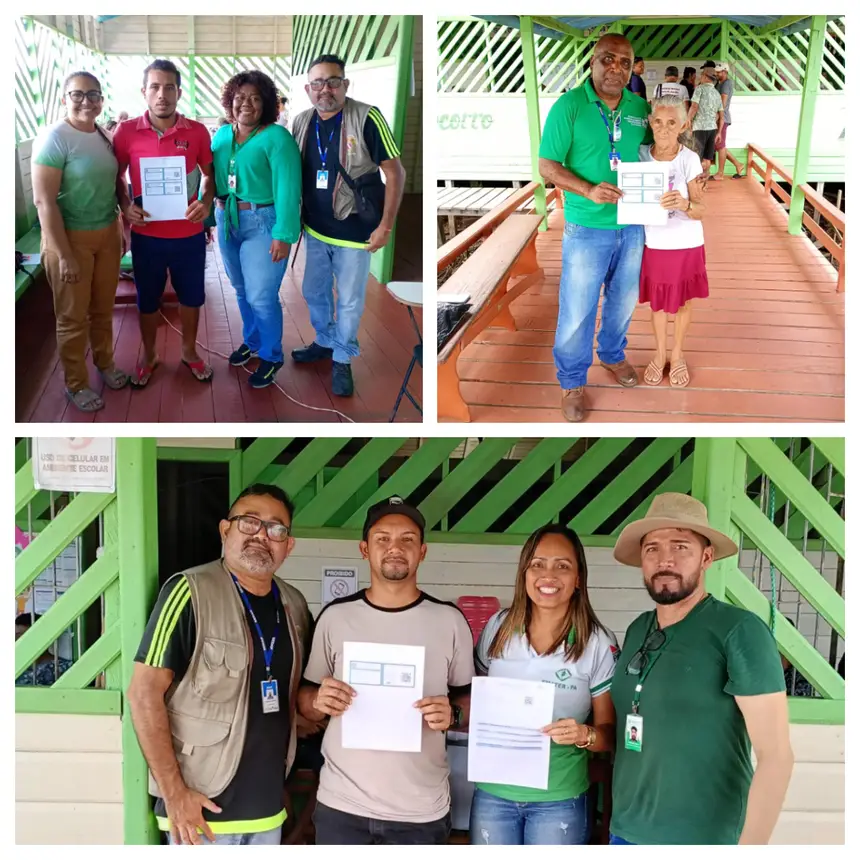
The action started on May 19 and will continue until the 28th of this month, serving more than six communities in the municipality of Anajás, in Marajó, with services aimed at CAF and the Rural Environmental Registry (CAR). The activity aims to facilitate local producers' access to rural credit and government programs aimed at family agriculture and sustainable development.
Created in 2022 by Sedap, the Marajó Sustentável program conducts annual itinerant actions aimed at improving the quality of life of riverside peoples, farmers, and local producers. This year, a team composed of six technicians from Emater, along with representatives from Sedap and different Local Offices of Emater in Marajó, is leading the effort in Anajás.
Among the professionals involved in the action are: Fredson da Silva (Emater advisor), Deivid Teixeira and Ariolando Belford (Sedap representatives), Fabrícia Barros (regional deputy coordinator of Marajó), Darcyleide Corrêa (head of Esloc Anajás), Bruna Paula Santos (Esloc Boa Vista), Manoel Azevedo (Esloc Oeiras do Pará), Lenize Alves (assistant technician), José Nilton (Esloc Melgaço), and Wanderley Rivas (Esloc Ananindeua).
The action reinforces the State government's commitment to promoting sustainable development in riverside regions, valuing traditional knowledge and environmental conservation as allies of economic progress in the Marajó archipelago.
Sedap highlights the Marajó Sustentável Project
The Marajó Sustentável Project for the Reactivation of Native Rubber Trees in Marajó - "Marajó Sustentável", coordinated by Sedap, is part of the Productive Chain Development Program for Rubber Trees in the State of Pará (Proser) and aims to contribute to increasing the productivity and quality of natural rubber, in order to promote the socioeconomic and environmental development of small producers and workers in family agriculture; extractivists and quilombolas, in the short term and with low investment.
According to Sedap, the purpose is to reactivate the native rubber trees in the archipelago, fostering the socioeconomic development of workers linked to family agriculture in the municipalities of Portel, Melgaço, and Anajás. The target audience is small producers and rural riverside workers in family agriculture; extractivists and quilombolas.
Through a Funding Agreement, Sedap transferred resources to the Biodiversity Protection and Sustainable Use of Natural Resources Pole (Poloprobio), located in Castanhal (Metropolitan Region of Belém), which is a Civil Society Organization of Public Interest (Oscip). The transfer is intended for the training of multipliers and the acquisition of equipment used in extractive activities, such as bowls for collecting, spouts for latex to flow into the bowl, helmets, boots, and reagents to assist in rubber processing. Poloprobio is responsible for the Seringô brand, which manufactures footwear with natural rubber sourced from the rubber trees of Marajó.
Text with collaboration from Rose Barbosa / Ascom Sedap


